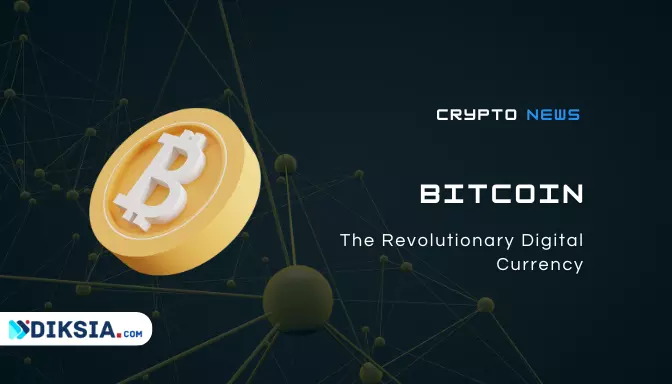Diksia.com - In the ever-evolving landscape of digital finance, Bitcoin has emerged as a pioneer and revolutionized the concept of currency. Bitcoin has transformed the way we perceive and engage with money, offering a decentralized alternative to traditional financial systems.
Introduction
Bitcoin, the pioneering cryptocurrency, has taken the world by storm since its inception in 2009. Created by an unknown person or group of people using the pseudonym Satoshi Nakamoto, Bitcoin has emerged as the frontrunner in the realm of decentralized digital currencies.
With its unique features and underlying technology, Bitcoin has disrupted traditional financial systems and ignited a global movement towards decentralized transactions.
In this article, we delve into the details of Bitcoin, its importance, key features, history, technology, market performance, investment potential, and more.
Bitcoin Details
| Category | Details |
|---|---|
| Coin Name | Bitcoin |
| Ticker Symbol | BTC |
| Launch Date | January 3, 2009 |
| Maximum Supply | 21 million BTC |
| Consensus Mechanism | Proof of Work (PoW) |
| Blockchain | Bitcoin Blockchain |
What is Bitcoin?
Bitcoin is a digital currency that was created in 2009 by an anonymous person or group of people under the name Satoshi Nakamoto. It is a decentralized currency, meaning that it is not subject to government or financial institution control. Bitcoin transactions are verified by network nodes through cryptography and recorded in a public distributed ledger called a blockchain.
Bitcoin is a decentralized digital currency that operates on a peer-to-peer network, enabling secure and direct transactions between participants without the need for intermediaries such as banks. It functions on a technology called blockchain, a distributed ledger that records all transactions across a network of computers. Bitcoin transactions are verified by network nodes through cryptography, ensuring their integrity and preventing double-spending.
Why is Bitcoin Important?
Bitcoin is important because it has the potential to revolutionize the way we think about money. It is a peer-to-peer currency, meaning that transactions can be made directly between two parties without the need for a third party, such as a bank. This makes Bitcoin transactions much cheaper and faster than traditional bank transfers.






